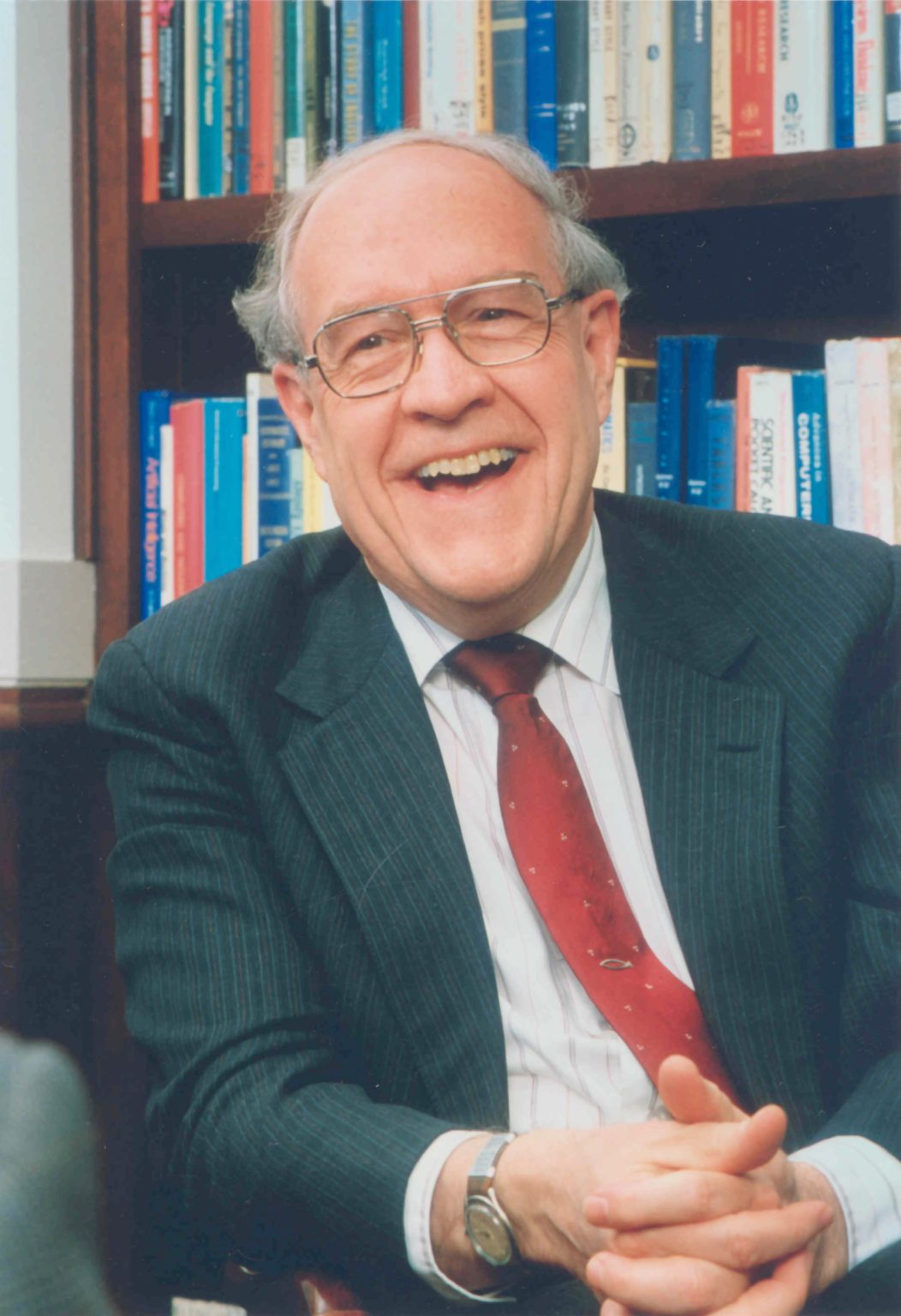
November 18, 2022
The Department of Computer Science mourns the loss of its founder, Dr. Frederick P. Brooks, Jr., a pioneer in the field of computer science and a tremendous colleague and friend to so many. Dr. Brooks passed away on November 17, 2022 at the age of 91, surrounded by his family. As a recipient of the A.M.Turing Award, often referred to as the Nobel Prize of Computing; an inaugural recipient of the National Medal of Technology; and a recipient of numerous other awards, Dr. Brooks was one of the most respected people in the field of computer science. He was also a kind and humble person, a friend and mentor to all.
Dr. Brooks grew up in Greenville, North Carolina and received a bachelor’s degree from Duke University and a doctorate from Harvard University, where he was supervised by computing pioneer Howard Aiken. He joined IBM in New York in 1956 and managed the IBM System/360 family of computers, which was revolutionary in the computer industry. Over the course of that project, Dr. Brooks made the decision to switch from a 6-bit to 8-bit byte, which enabled the use of lowercase letters and became the industry standard.
In 1962, while working on the IBM System/360 project, Dr. Brooks visited UNC-Chapel Hill for an interview and guest lecture entitled “Ten Research Problems in Computer Science.” This made an impression on the administration that led to the formation of what would become the Department of Computer Science. Brooks would return a year later and agree to lead the new department, which became the second free-standing, doctorate-granting computer science department in the United States. He was only 33 years old at the time of the department’s founding, and the department was initially named “Information Science” because the new discipline had not yet settled on a name.
When IBM offered a $100,000 grant to help grow the new department, Dr. Brooks insisted that the grant be spread evenly between UNC-Chapel Hill, Duke University, and North Carolina State University to establish a pillar of computer science in the Research Triangle. That collaboration has led to decades of shared resources and research collaborations, and all three universities have highly ranked computer science programs today. Dr. Brooks has also been cited as a key role-player in convincing IBM to build in Research Triangle Park what eventually became its largest office complex in the world.
In 2008, UNC-Chapel Hill built a second building to extend the computer science department’s footprint. The new building was named for Dr. Brooks, who was still working in the department at the time. He never moved into the newer offices in Brooks Building, however, instead humbly insisting on maintaining his office in Sitterson Hall through his retirement.
Dr. Brooks spent two decades as department chair and also led a research group in interactive computer graphics and virtual environments. In addition to his research, he was an extraordinary mentor for his many colleagues and students. More than 40 students completed doctorates with him as principal advisor, and very many others benefited from his counsel. He also advised on many academic developments at the university and in the College of Arts and Sciences. He continued teaching and advising graduate students into his 80s, ultimately retiring in 2015 after 51 years of service to the university. He continued to attend department faculty meetings into the COVID-19 pandemic, several years after his retirement. He described the computer scientist as a toolsmith, and his department accordingly sought out collaborative research projects that solved problems in chemistry, physics, medicine, and other disciplines. The Department of Computer Science remains a top-30 department today.
Dr. Brooks has left an unmistakable mark on the computer science department and on his profession; this is physically recognized by the south portion of the department’s building complex bearing his name. He set an example of excellence in both scholarship and teaching, with a constant focus on the people of the department, treating everyone with respect and appreciation. His legacy will live on at UNC-Chapel Hill.
A visitation will be held on Monday, November 21 from 7:00 p.m. until 9:00 p.m. at Orange United Methodist Church in Chapel Hill. A memorial service will follow on Tuesday, November 22 at 11:00 a.m. at the Chapel Hill Bible Church. The Department of Computer Science will hold a memorial event on a date to be announced.
In lieu of flowers, memorial gifts may be made to the N.C. Study Center, 203 Battle Lane, Chapel Hill, NC, 27154 or to Trinity School of Durham and Chapel Hill, 1011 Pickett Road, Durham NC, 27705.
